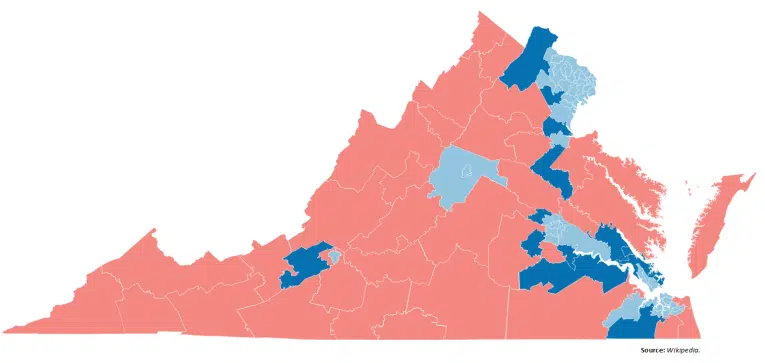 By Paul Driessen — Good for Wal-Mart! Despite intense pressure by anti-biotechnology activists, the retailing giant didn’t cave in to demands that it “reject” Monsanto’s genetically engineered (GE) sweet corn (maize).
By Paul Driessen — Good for Wal-Mart! Despite intense pressure by anti-biotechnology activists, the retailing giant didn’t cave in to demands that it “reject” Monsanto’s genetically engineered (GE) sweet corn (maize).
Other retailers had capitulated to intimidation campaigns by Food and Water Watch, Greenpeace and similar anti-technology groups: McDonald’s, Heinz, Frito-Lay, Trader Joe’s, Whole Foods. So this rare display of corporate courage, ethics and common sense should be applauded.
FWW launched its campaign in January 2012, claiming GE corn “hasn’t been tested for human safety” and contains DNA traits that “are potentially unsafe.” What utter nonsense.
All biotech crops, including GE sweet corn, have gone through years of testing, studies and approval processes by the FDA’s Center for Food Safety and Nutrition, Agriculture Department’s Animal and Plant Health Inspection Service, Environmental Protection Agency and other labs, before being placed on the market. In fact, biotech crops have been tested far more rigorously than any other foods (including organic products), hundreds of peer-reviewed studies have determined that they are safe to eat. In the 16 years since such crops were first introduced in 1996, people have eaten more than two trillion servings of foods containing biotech ingredients — without a single documented case of injury to a person.
We all want safe, nutritious food, grown under the best agricultural and environmental practices. That’s what makes biotechnology so important. By precisely inserting specific traits into the genetic makeup of important food crops, scientists have been able to make many foods safer, equally or more nutritious, and better for the environment. The following traits are especially important.
Herbicide resistance. Corn that is resistant to Roundup or other herbicides enables farmers to employ no-till techniques to control weeds, instead of using cultivators to bury them too deep to grow. This preserves soil nutrients and organic matter, increases water absorption and retention, and significantly reduces erosion — improving soil fertility and crop yields, while reducing irrigation and fuel costs.
Insect resistance. A single gene (derived from a natural soil bacterium, Bacillus thuringiensis, or Bt, and inserted into the corn genome) enables corn plants to make a protein that is harmless to humans, but disrupts the digestive system of insects that munch on the plants’ roots or kernels, while leaving ladybugs, butterflies and other beneficial insects unaffected. The Bt gene augments corn plants’ natural defenses, slashes insecticide spraying (by up to 85% for sweet corn), dramatically reduces corn borer (caterpillar) and rootworm (beetle larvae) damage, keeps roots healthy and plants alive, and minimizes the amount of insect-damaged corn ears that are left to rot in fields or are rejected by consumers and thrown out by grocers.
By killing insect borers in the ears, Bt corn largely eliminates pathways for fungal contamination that leads to dangerous levels of fumonisin in corn meal. This fungal toxin causes fatal diseases in horses and is linked to esophageal cancer in people and neural tube defects (like spinal bifida) in developing fetuses.
These benefits are hugely important for US farmers; for consumers who want safe, affordable, nutritious food; and especially for farmers and consumers in poor, drought-stricken, insect-plagued regions like Africa. They mean less land must be devoted to crops, leaving more for wildlife habitat, thereby improving biodiversity and ensuring sustainable agriculture. They explain why 10 percent of US sweet corn is already Bt (Syngenta introduced its Bt sweet corn more than a decade ago), 70 percent of processed foods in American diets contain ingredients from biotech crops (including corn, squash, soybeans, canola, sugarbeets and papayas), 88 percent of all corn (field and sweet) grown in the USA is biotech, and 17 million farmers in 29 nations (90 percent in developing countries) grow biotech crops on 395 million acres.
Wal-Mart doubtless understood all or most of this — and was not going be bamboozled or intimidated by a few noisy activists who did not represent its customers, sound science or the public interest.
Those activists may actually believe their allegations. They certainly know how to generate letters and phone calls, harass businesses, and frighten urban consumers who’ve never been on a farm, know little about how their food is produced, don’t understand genetics or biotechnology, and are thus susceptible to clever hoaxes and ridiculous claims by activists, who are often enlisted and paid by organic producers and retailers that profit mightily from their land and labor-intensive alternatives to conventional food.
In any event, Wal-Mart didn’t cave. So a few months later Food and Water Watch sent out a “we give up” letter, whining that Wal-Mart had “ignored the petitions, calls and public pressure” it had orchestrated. (Its 370-word letter included nine separate pitches for contributions.)
FWW also announced that it was launching a new campaign — to get state and federal laws passed, requiring that all GE foods be labeled. The proclaimed justification for labeling is that “people have a right to know what’s in their food and how it is produced.” The real reason is that labels will make it easier for anti-biotech activists to single out and stigmatize biotech products, generate consumer anxiety, and intimidate grocers into taking nutritious and perfectly safe products off their shelves.
While “progressive” (anti-business) states like California and Oregon may go along with this nonsense, responsible legislators will tell the activists to take a hike. Or they could require that all foods carry relevant (and spooky) safety labels, and consumers be offered more detailed information (prepared by competitors). For instance, lawmakers could mandate that organic products carry warnings like these.
- No studies have ever demonstrated that organic products are safer or more nutritious than milk, meat, fruits or vegetables produced by conventional or biotech methods.
- Various organic crops were developed using gamma rays, x-rays and potent chemicals like colchicine, to induce numerous (mostly unknown) mutations in seeds, in the hope that a few might be beneficial.
- Many organic farmers regularly spray live Bt spores and proteins, copper sulfate, petroleum oils and other insecticidal chemicals, to control crop pests. Some secretly use chemical herbicides and insecticides.
- Random testing has found that biotech corn meal has fumonisin levels well below the 500 parts per billion regulatory limit, whereas pure (non-blended) organic corn meal is often far above the limit — with some organic corn meal testing at 9,000 or even 16,000 ppb: 18-32 times above safety standards.
- Mad cow disease was first found on an English organic farm – and some organic dairy farmers continue milking cows infected with mastitis until the animals die, rather than treating them with antibiotics.
- The deadly spinach E. Coli outbreak several years ago was traced to a farm that was in transition from conventional to organic. Organic produce is always more susceptible to bacterial contamination, because the farmers rely on manure instead of chemical fertilizers (many derived from nitrogen in the air).
All these statements are true — but largely irrelevant. Thanks to regulations, inspections, and responsible practices by seed producers, farmers, processors and retailers, America’s food is generally very safe. The few occasional E. coli and salmonella outbreaks could be prevented by irradiating the most susceptible fruits, vegetables and meats — but anti-biotech activists also oppose irradiation. Go figure.
We’d all be better off if these ridiculous attacks on conventional and biotech (and organic) foods were simply thrown out with the garbage. Most critically, Third World farmers and families would suffer far less poverty, malnutrition, starvation, Vitamin A deficiency and deprivation, if anti-biotech activists (especially in Europe) would end their fanatical obsession about “potential” biotech “contamination” of conventional and organic foods (and flowers!) imported from Africa and other impoverished regions.
Meanwhile, let’s all congratulate Wal-Mart for taking a principled, ethical, scientific stand.
Paul Driessen is senior policy advisor for the Committee For A Constructive Tomorrow and Congress of Racial Equality and author of Eco-Imperialism: Green power – Black death (www.Eco-Imperialism.com)






